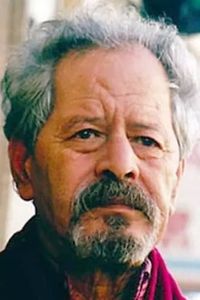Mohamed Choukri, a renowned Moroccan author and novelist, was born in 1935 in Ayt Chiker, a small village in the Rif mountains of the Nador province, Morocco. He was raised in a desperately poor family, and his childhood was marked by extreme poverty, violence, and hardship.
Choukri's early life was characterized by running away from his tyrannical father and becoming a homeless child, living in the poor neighborhoods of Tangier. He was surrounded by misery, prostitution, violence, and drug abuse, which had a profound impact on his life.
Despite the challenges he faced, Choukri's determination and resilience led him to learn how to read and write at the age of 20. He went on to become a schoolteacher, which marked a significant turning point in his life.
In the 1960s, Choukri's life took a dramatic turn when he met prominent literary figures such as Paul Bowles, Jean Genet, and Tennessee Williams in the cosmopolitan city of Tangier. This exposure to the literary world inspired him to write his first story, "Al-Unf ala al-shati" ("Violence on the Beach"),which was published in 1966.
Choukri's international success came with the English translation of his novel "Al-khoubz Al-Hafi" (For Bread Alone) by Paul Bowles in 1973. The book was later translated into 30 languages, including French, Arabic, and many others.
Mohamed Choukri's literary career was marked by numerous awards and accolades, including the prestigious Prix de la Littérature Maghrébine in 1993. He was also the recipient of the Grand Prix du Livre Maghrébin in 1995.
Before his passing in 2003, Choukri created a foundation that protects his copyrights, manuscripts, and personal writings. He was buried at the Marshan cemetery in Tangier, with numerous government officials, personalities, and the spokesman of the king of Morocco in attendance.
Choukri's legacy continues to be celebrated, and his work remains a testament to his resilience, determination, and talent as a writer.


















